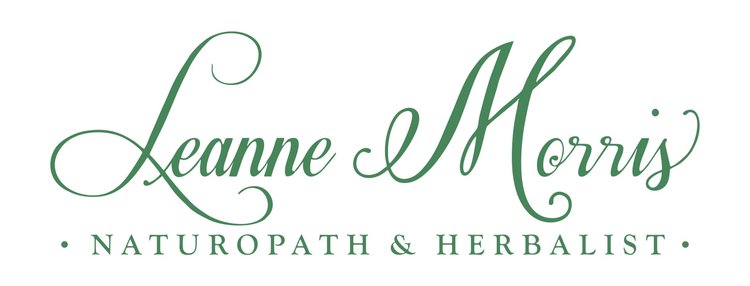Introducing Leanne Morris – Clinical Naturopath, Medical Herbalist and Homeobatanical Practitioner.
Practitioner Products are only dispensed with a Professional Consultation
The initial homeopathic consultation takes approximately 1.5hrs, sometimes longer. I will take a detailed assesment of your current condition as well as your past medical history. As homeopathy is a holistic treatment I will also be asking questions about you as a person so that a clear idea of your wellbeing as a whole can be gained.
Follow-up consultations are generally within 3- 6 weeks of your first appointment and take 30-45 minutes. At this time I will look at how you have progressed and any changes in your health and wellbeing, discussing with you a treatment plan for the future. Sessions which are shorter are also available for simple acutes and fees will be according to the time spent.
we are treating "The patient, not the disease".
So, this is how we do it. A consultation lasts typically an hour and a half, and I listen to your whole story. How your complaint(s) came about, and what your unique feelings, sensations, reactions in disease are. Its most important to match the condition of the patient, to the homeopathic remedy which can cause a similar state in the healthy. That is what makes it "homeopathic" , by what condition is brought out in a healthy individual by that substance. "Like cures like". The testing in healthy volunteers for what a remedy may cause, is called a homeopathic proving.
Sometimes supplements are supplied via patient ordering. Care is taken to rule out contraindications for these. As much as possible, we do not over complicate things. Where we can do more, with less supplements, we do.
The aim is to be efficient in improving health, not to send anyone bankrupt. That is why I chose homeopathy - to do the best in the first place for myself, and then to help others toward long term health in the most efficient way. To look for the causes of an individual being unwell, and to find what is best for them in homeopathy to give a stimulus toward healing, rather than trying to fit them into a futile medical condition box and sell products.
What does a consultation involve?
An initial consultation takes about one and a half hours.
It's always recommended to seek professional advice from your GP for accurate medical diagnoses and tests. After that initial step, we can focus on addressing your individual health concerns and goals during our discussions.
What is bothering you the most right now, what lead up to it, what is your past history? What is your unique reaction in disease, because that's how homeopathy works - when it matches you as a person, rather than specific remedies for disease conditions.
For example, many people with a headache will each receive a different remedy, according to their individual characteristics in a complaint. Examples : What makes the problem better or worse, how did it start? How is it different to the usual symptoms of a condition? How are you in your character and energy when you are unwell? Is there a particular recurrent situation which throws you off balance, diminishes your health and wellbeing?
Is your focus on family, work, relationships, performing in public? How to cope with the outside world with sensitivities and vulnerabilities? Too easily having reactions to foods, or temperature changes and weather, or anything at all?
Do you have difficulties with others, or with being unwell since a certain event like an injury (head injuries especially), an infection, medication (antibiotics, the contraceptive pill, cortisone etc). Grief, loss, abuse?
Of 7000+ remedies in homeopathy to date, we need the right one at the right moment.
Usually, one to three homeopathic remedies are given, included in the cost of the consultation. (Any Hbt drops, herbs or supplements are extra, but the main focus is homeopathy, for a deep and lasting change).
Homeopathy is applicable in almost all acute and chronic disturbance of health. "The patient, not the disease", for deep and lasting improvements through all stages of life.
Herbalism
A herbalist supports self-healing, gives guidance, and focuses on diet, exercise, and emotional well-being.
Herbalists follow the ancient principles of working with the cause of the illness wherever possible. Herbal medicines have a tremendous history of use going back thousands of years. In that time, practitioners have taken great care to learn what works and how to use it safely. This knowledge has been passed down and a medical herbalist today has gone through extensive training in how to use herbs both safely and effectively.Herbal remedies have been the foundation of health care through recorded history. Many modern drugs are derived from plants. Today herbs can be ideal complements to modern medicines
Medical herbalists carefully select and utilize specific plants based on their traditional uses, which are further supported by contemporary scientific studies and rigorous clinical trials. A Registered Medical Herbalist in New Zealand commits to a thorough academic pursuit that spans at least three years on a full-time basis. This intensive duration of education is fundamental to fulfilling the exacting standards established by the New Zealand Association of Medical Herbalists (NZAMH) for the attainment of professional registration.
A wide array of subjects is extensively explored in the course, encompassing herbal materia medica (healing materials), philosophy, principles, practices, safety, quality concerns, and various medical sciences such as anatomy, physiology, pathology, clinical skills, pathophysiology, phyto-pharmacy, and herb-drug interactions.
Herbalists adopt a comprehensive approach to health concerns, focusing on addressing the root cause of illnesses instead of solely alleviating symptoms. In conjunction with other medical interventions, they can recommend herbal remedies, often receiving referrals from general practitioners for patient care.
Herbal medicine involves the utilization of plants for medicinal purposes, with remedies derived from various plant parts like leaves, flowers, roots, or bark. This practice, which has been a cornerstone of healthcare for centuries, transcends geographical boundaries with diverse herbal traditions.
